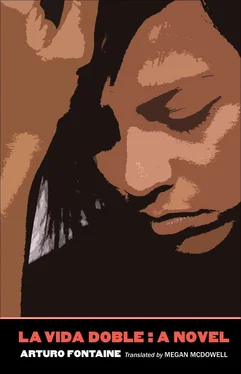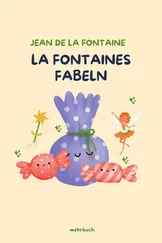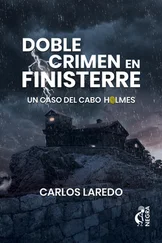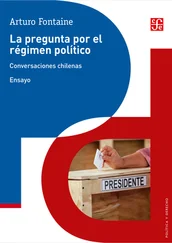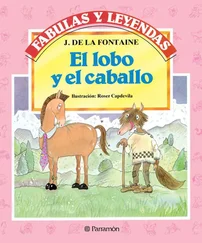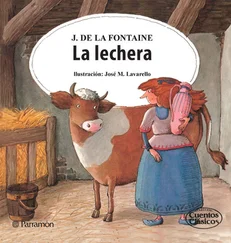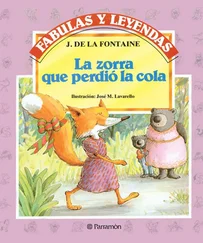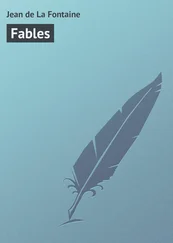“How to regain those earlier times when I was a little girl, those moments when we understood each other without trying, and just being with him was fun. Back then there wasn’t this pressure or these heartaches, the neglected duty, my anguish over not accomplishing what I’ve promised myself, though deep down I know it’s just my own youthful ambition and he’s to blame, he’s the one who implanted this feeling of specialness in me. Back then I didn’t have this critical and evasive gaze. I blame myself. Myself, and my mother. It’s my endless adolescence. They explained to us in school over and over what it was all about. Is it possible to return to a previous state? Or if not, when will I be old enough to leave all this behind? And it’s not a question of getting some physical distance — we already have that. He filters into my mind. The other day I was flipping through his books, which are few, and I came across a verse. It said that the father, even dead, has ‘fear within me, within my very hope.’ It was a quotation from Rilke, and he had underlined it himself. It was a self-help book for fathers. I think it must have been a gift from his wife, who isn’t very intellectual, shall we say. But the only parts that were underlined had been underlined by him. In my solitude, that uncertainty of his sneaks in and I can be, in part, how I think he might want to be if he were me. Only by keeping my distance can I manage to be myself and also coincide with him. And be at peace. But only partially. Because there’s an equally strong and insistent force that makes me want to be definitively separate from him, that urges me to live as though he had never existed. And when the good-bye comes, the very moment I’ve been looking forward to, sometimes my eyes fill with tears. And it’s not that the separation is going to be long, no. Because it’s not my departure from that duplex of his, with Master playing in the front yard, that separates us. My departure is just a pretext for that long embrace that we give each other always and never.”
That’s it. Well, you can tell I was in college and I was trying to write with a certain style, right? How pretentious. .
I come out of my childhood room and I search among my mother’s jars and bottles. I draw an almost boiling bath, a bubble bath. I use her verbena soap, her shampoo, her conditioner with pure olive oil, I dry off with her fluffy towel, I spread her almond-scented lotion over my legs, my arms, over my diminished breasts. I trim my toenails, I use her lotion for cracked heels. I take the top off her bottle of nail polish; its smell would make me dizzy now. I open her makeup box and that palette of colors calls out to me; I’d like to make an abstract painting with my hands. But its shades confuse me, I don’t know how to begin, and I go back to bed with my hair wet.
I return to the apricot tree. I try to imagine the way those ripe apricots looked shining in the afternoon light. As I said already: beyond the curtains I don’t open there are no apricots yet, there are flowers plastered against my window. I glance at the bedside table: a pile of pages stuck to old glue. No covers. Dry, yellow pages: “Would I find la Maga? Most of the time it was just a case of putting in an appearance, going along the rue de Seine to the arch leading into the Quai de Conti, and I would see her slender form against the olive ashen light. .” I turn to page 48: “I touch your mouth, I touch the edge of your mouth with a finger, I am drawing it as if it sprang forth from my hand. .,” and to page 428: “As soon as he began to amalate the noeme, the clemise began to smother her and they fell into hydromuries, into savage ambonies, into exasperating sustales.” So many times I had dreamed with open eyes over this book. . I start to fall asleep. It’s wonderful to be able to doze like that.
Suddenly, I hear my father’s voice.
My door opens and he’s really there, sitting at the edge of my bed, his big hand caressing my hair. He looks younger than my mother. I smell his same old Yardley cologne. It smells of lavender; it is what remains of his old life. That, and his suit made of good cloth that’s grown shiny and worn with use. He’s a youthful and handsome old man, with his shock of white hair falling over his ears. It’s strange to see him there in my mother’s house.
When he heard me crying he put his arms around me. The only thing I wanted was to again be the little girl whose father could make everything right with the world. I’m sure that’s what he wanted too. It felt wonderful to burst into tears in his arms; I felt myself growing calm little by little, though I didn’t stop crying, pressed close to him and wanting to never let go. I wanted to go with him to El Quisco, I told him, that very day, to swim in the sea, play paddleball on the beach with him. . I made him lie down next to me on the bed. I laid my head on his chest. I felt the thin cotton of his shirt and the cold silk of his tie on my cheek. I felt his beating heart against my ear. “Daddy,” I said to him.
It was dusk when I woke up. How long had I slept? There was barely a trace of light floating behind the curtains. Then he started talking to me, he told me he loved me so, so much, and that for all these years he had thought of me every day, every day. He was talking in a soft murmur, and I took refuge in his tenderness. I felt that, like an incubator coaxing chicks out of shells, his warmth was bringing me back to myself, to what I had been, to a lost peace. Happiness had existed, and I could get it back.
Suddenly he was asking, in the same sweet and masculine tone, why I had gotten myself into this trouble; he said he had told me not to get mixed up in politics, it was a foolish thing to do under a dictatorship. I jerked away roughly and ordered him to leave the room. My teeth were chattering in rage. I couldn’t speak. I couldn’t control my jaw. He tried to soothe me, he told me he was sorry. I wouldn’t relent, and I threw him out of my room. He told me that no matter what happened or what I did, he would always love me and I could always count on him. He closed the door gently. I tried to cry, but I couldn’t.
My inability to coincide with myself, when did that begin? The distance from myself that I seem to have always felt, what caused it? And my resentment? I go back, then, inevitably, to the rupture that came from my parents’ divorce, my harsh disdain for my mother after my father left — my mother, who didn’t know how to keep him with her. Her efforts to be motherly only seemed like signs of her impotence. I go back to my father, the love I felt — the resentful love of an only child for the man who had left us both — my jealousy of his new wife, who was not my mother but who wanted to be something like it, and thus let me punish both him and her in revenge for my scorned mother. I go back to my intense devotion to Mary, virgin and mother who never knew a man’s sex. She was my solace, she and my grandmother, my grandmother with her white hair that would turn yellow and her natural, easy laugh, whom I went to visit every afternoon.
And I’m haunted by my terror of the nuns, of their sparse moustaches and their rancid odor, their severity that intimidated and disciplined me; later, my disdain for them would grow, for their irredeemable infantilism, their sinful vigilance. I feel the desolation of the day of my first period, my disconsolate sobbing. I didn’t want to stop being a little girl yet, I was still very short, and I couldn’t, just couldn’t accept that my childhood had ended so suddenly and with such strange discomfort, a pain down low in my belly, and this dark blood, viscous, foul-smelling, and mine — no, I didn’t want to be a woman, not yet. But it was forced on me, just like my parents’ divorce and the sudden death of my grandmother, who took the Virgin with her. She left me her embossed silver mirror. I still have it.
Читать дальше
